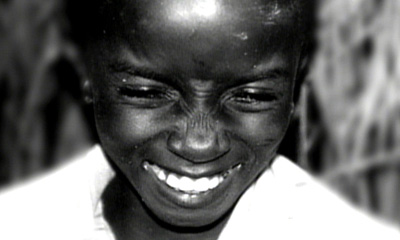 This article is the third piece in the ReDEFINING Blog Series. ReDEFINING aims to dismantle the dominant, destructive, and inaccurate perceptions of people by crafting a new narrative for ourselves and defining who we are and who we want to be. For more information about the series and how you can participate >
This article is the third piece in the ReDEFINING Blog Series. ReDEFINING aims to dismantle the dominant, destructive, and inaccurate perceptions of people by crafting a new narrative for ourselves and defining who we are and who we want to be. For more information about the series and how you can participate >
“You don’t act black.”
I still remember the first time someone said those words to me. I was in the sixth grade, walking past a group of black girls who were clustered off in a corner of the gym. In spite of my best efforts, I never seemed to fit into their group. They were the popular ones and I was this quirky girl with Urkel-like glasses and braces. I preferred basic white sneakers that matched all of my outfits to the latest Air Jordans. While everyone else sung the words to the latest R. Kelly lyrics, I couldn’t stand them, understanding at 11 years old what a misogynist, destructive individual he was to women everywhere comparing us to the likes of a Jeep (um, no thank you).
All of this aside, because none of it defines blackness, I fail to understand what it exactly was that prompted their accusatory remarks. “Ebony, you don’t act black. You act white.” Their words cut deep into my soul. No one had ever said these things to me and yet I knew exactly what they meant – that I wasn’t one of them. I knew that I wasn’t a part of their group; I wasn’t a popular kid and I could accept that. But I couldn’t accept not being counted as a member of the black community. I wasn’t quite sure what to do but I went into defense mode and tried to prove that I was just as down as everyone else. I brought some of my music to school just to prove that I was listening to the same things everyone else was, R. Kelly aside. I tried to dress more like everyone else but failed miserably because my family couldn’t afford to keep up with the latest status symbols (I also failed because back then I had no sense of style and was pairing flowery vests with bright orange t-shirts, true story). I even tried talking like some of the other kids. When they questioned me as to why I didn’t swear, I gave it a whirl. Briefly. The words always felt clumsy on my lips.
I wish I could tell you that this was a one time occurrence but it wasn’t. Throughout the rest of my school years, including college, and into adulthood, people have consistently accused me of not acting black enough. When I chose to study missions and pastoral studies at a Christian college in Minneapolis, the other black students wondered why I wasn’t pursuing Urban Studies as if it was the only appropriate major for the handful of black kids who attended that school. When I baked and brought a sweet potato pie to a staff meeting at church, people congratulated me and exclaimed, “Ebony, wow, you really are black!” When I share my story, on the few occasions that I am asked, about my upbringing and where I was raised – on 37th and Lisbon, between two crack houses, in the 90s – people either doubt my words or ignore them. When I failed to answer a piece of trivia correctly regarding a movie that has been popular among black folk over a few decades, someone threatened to revoke my black card and questioned if I was really legitimate. I laughed it off saying that my mother screened out movies like those when I was younger and they laughed too. But deep inside I was seething, crying because I so desperately wanted to be accepted among my own.
